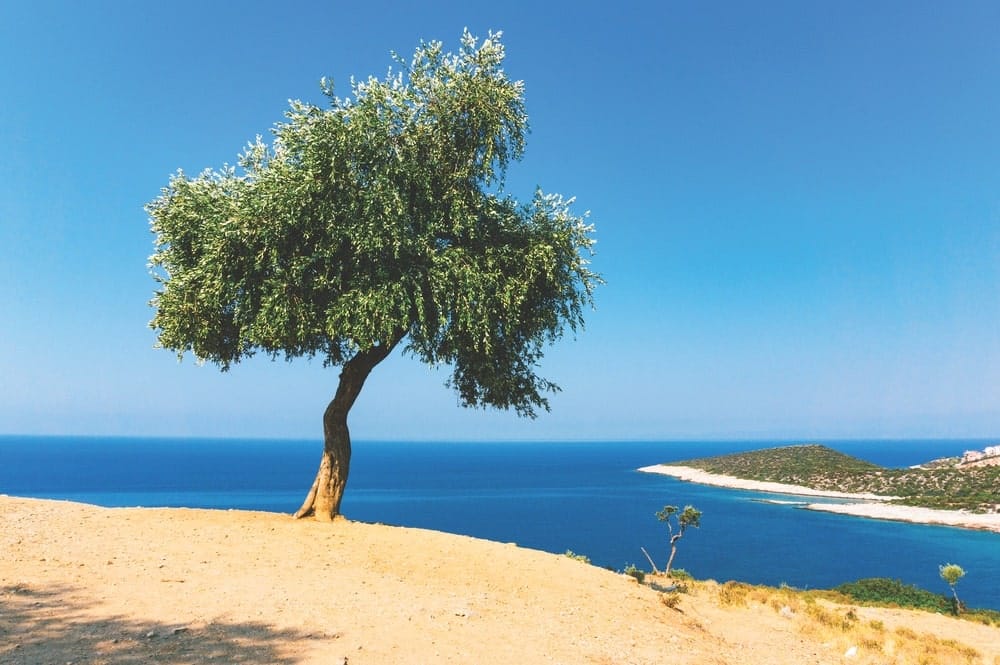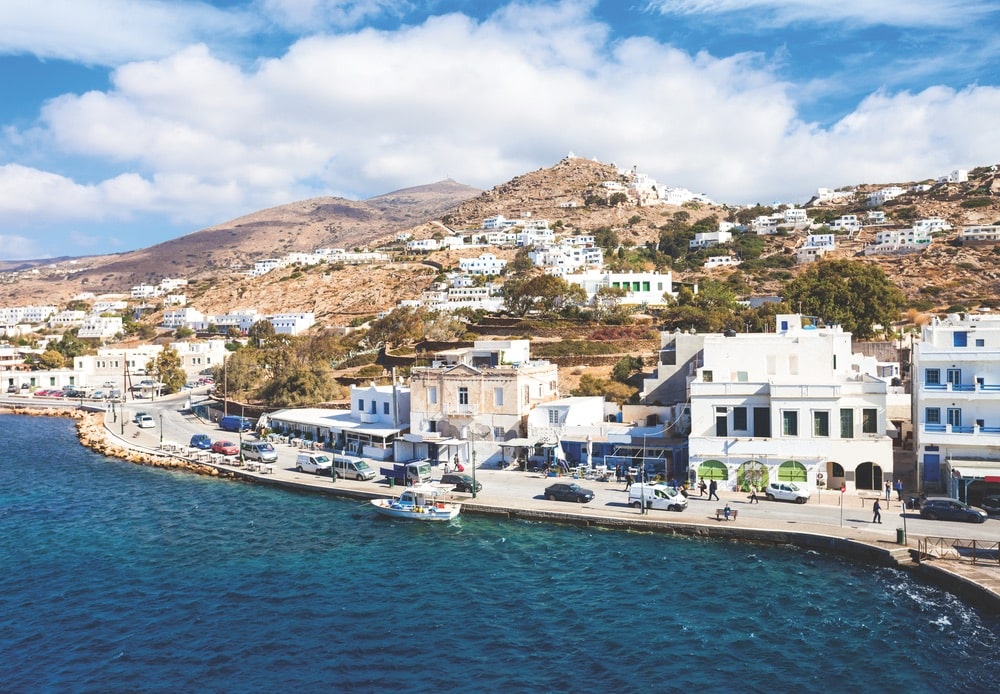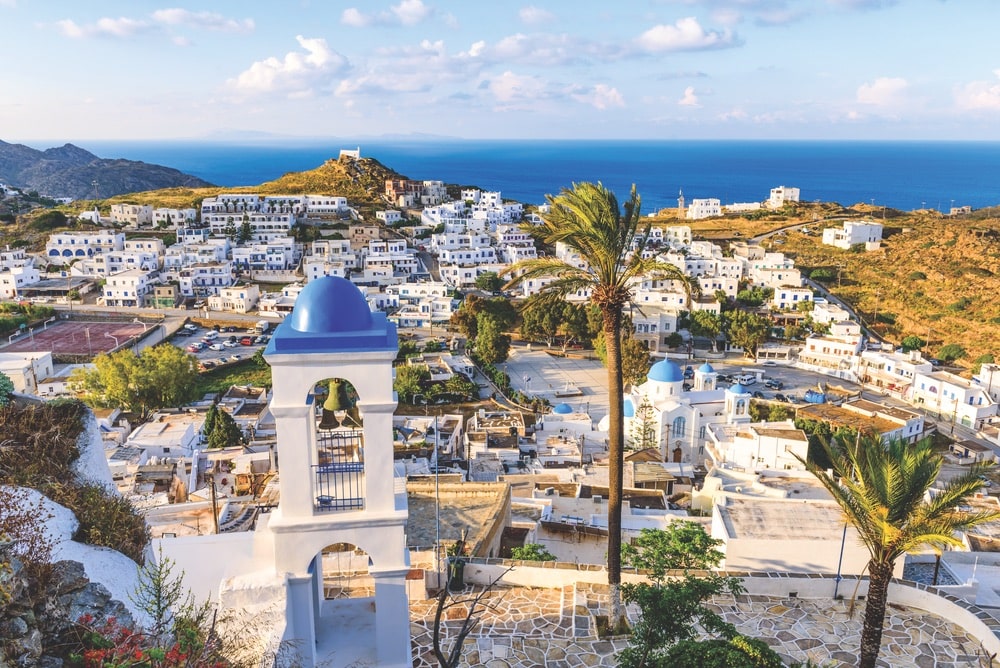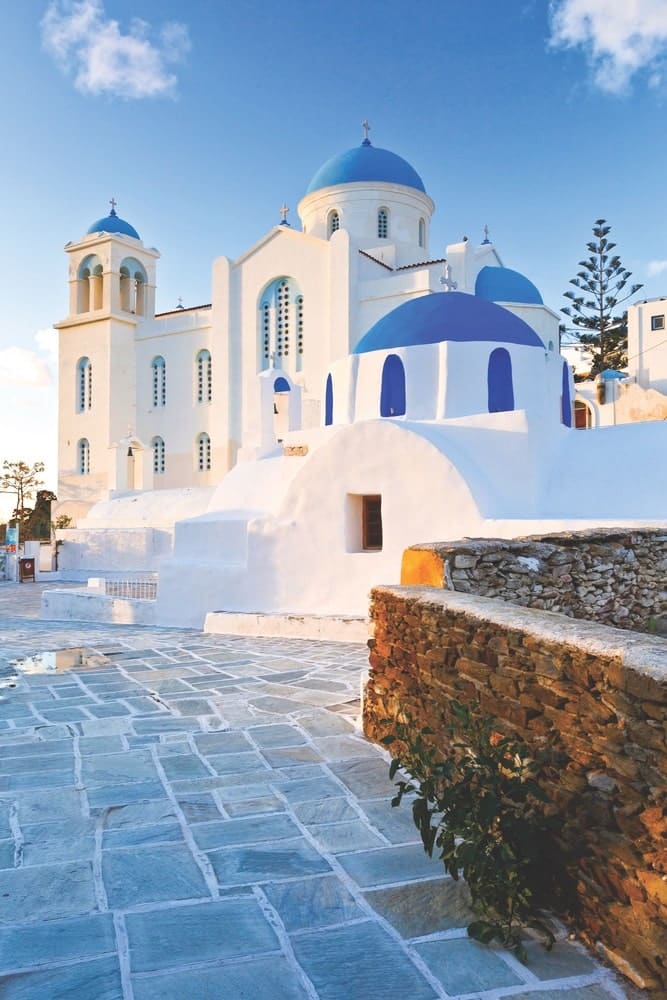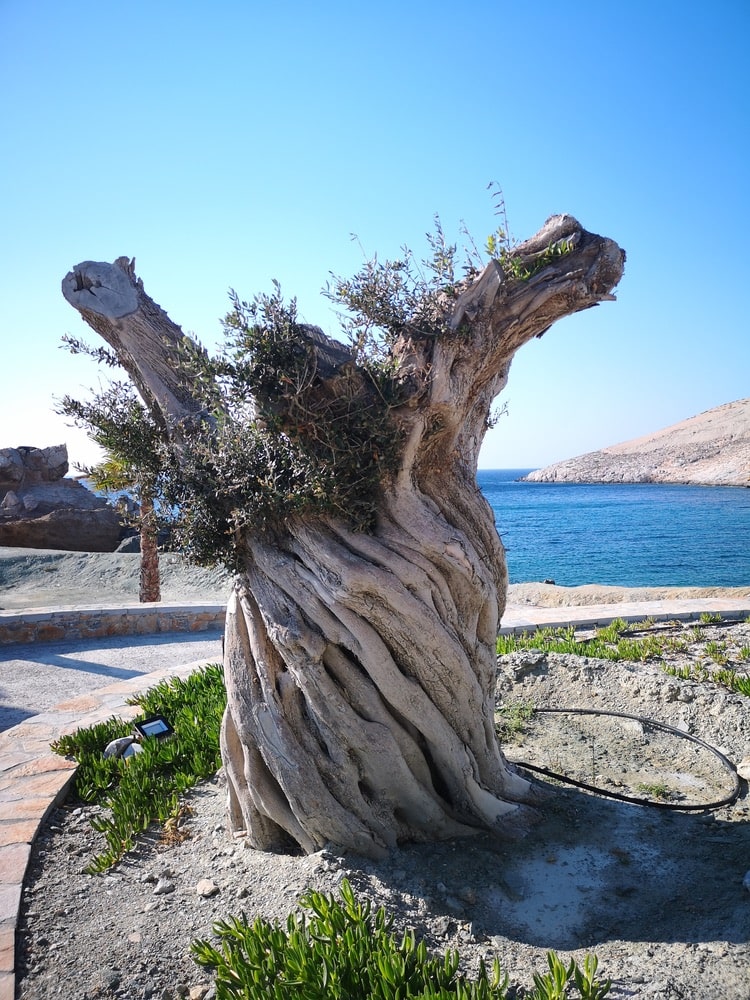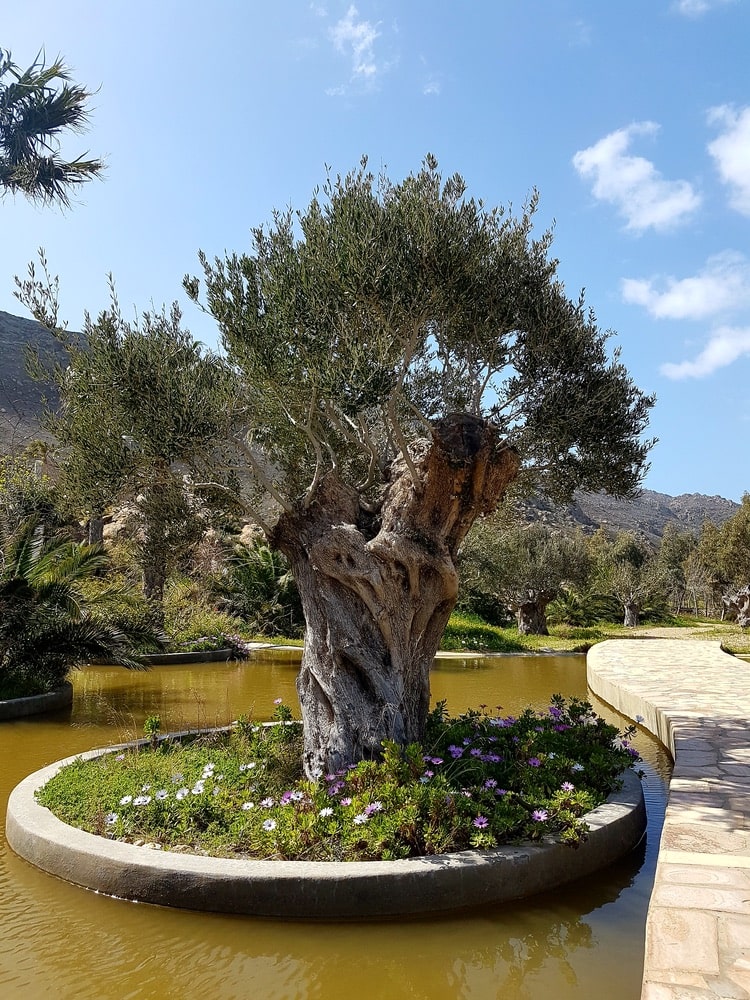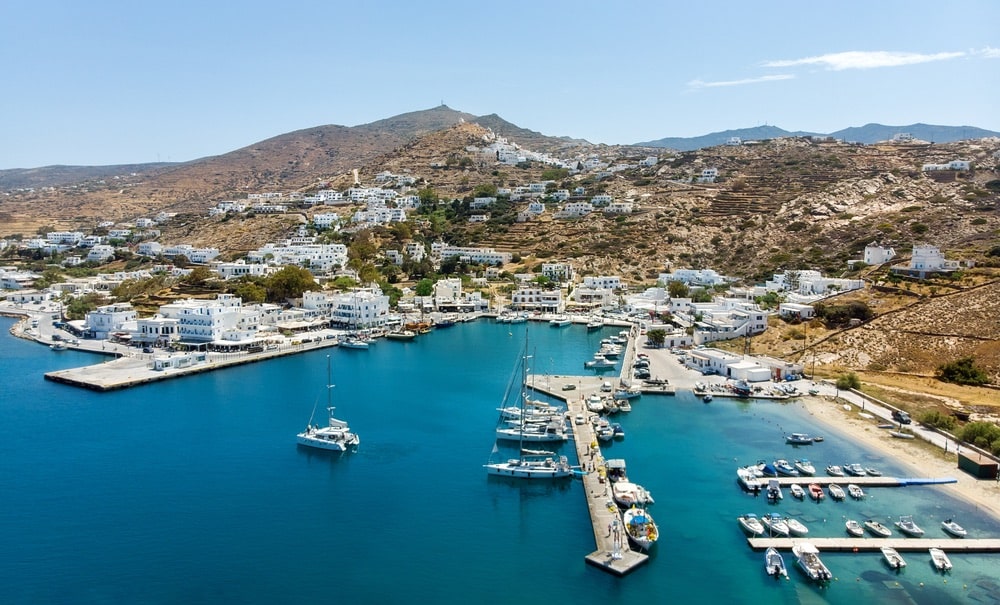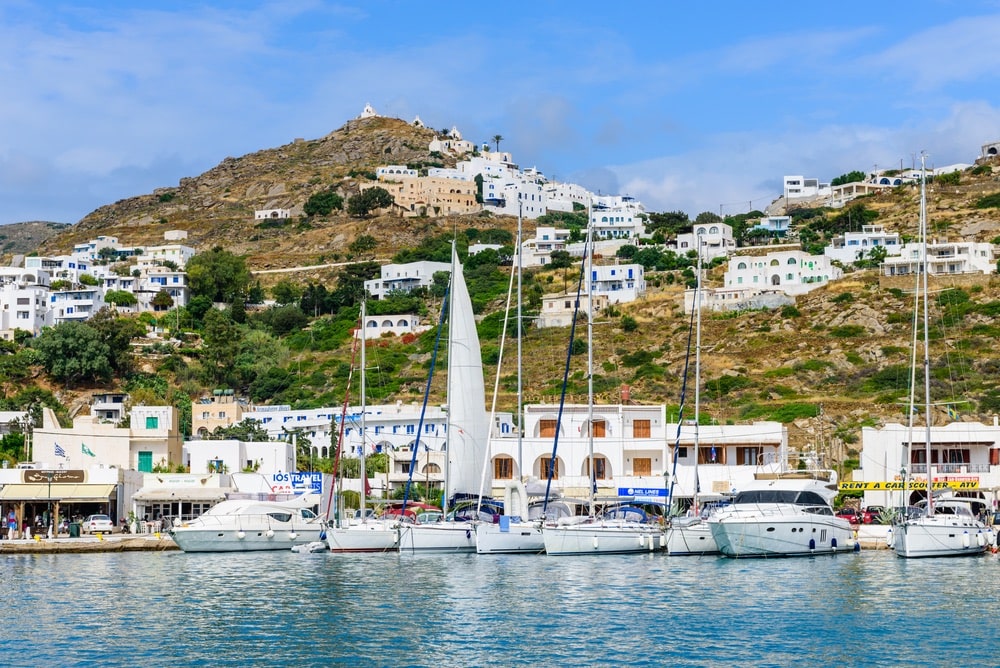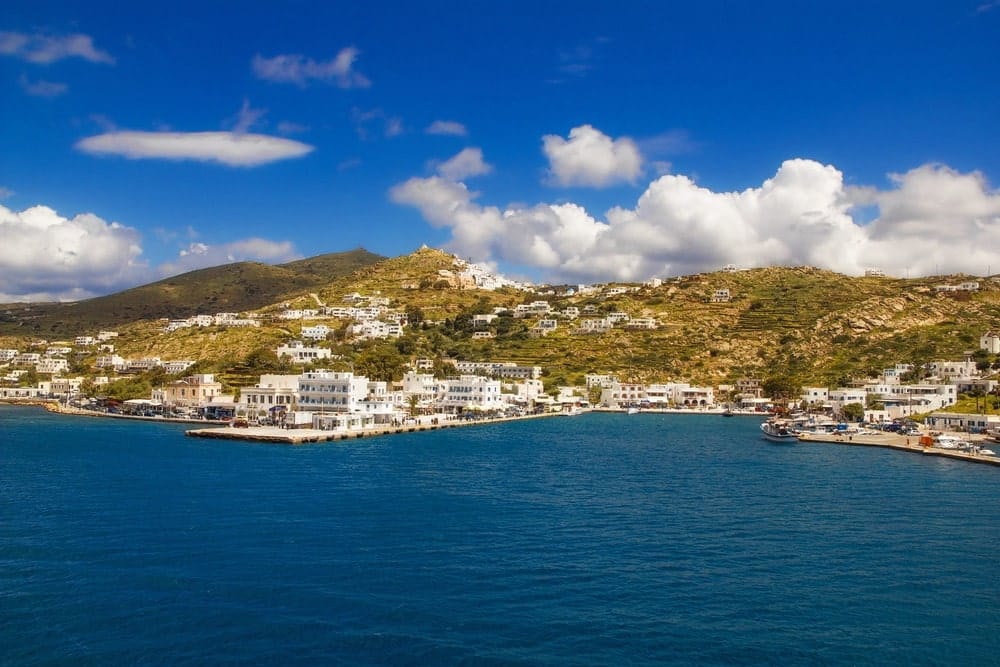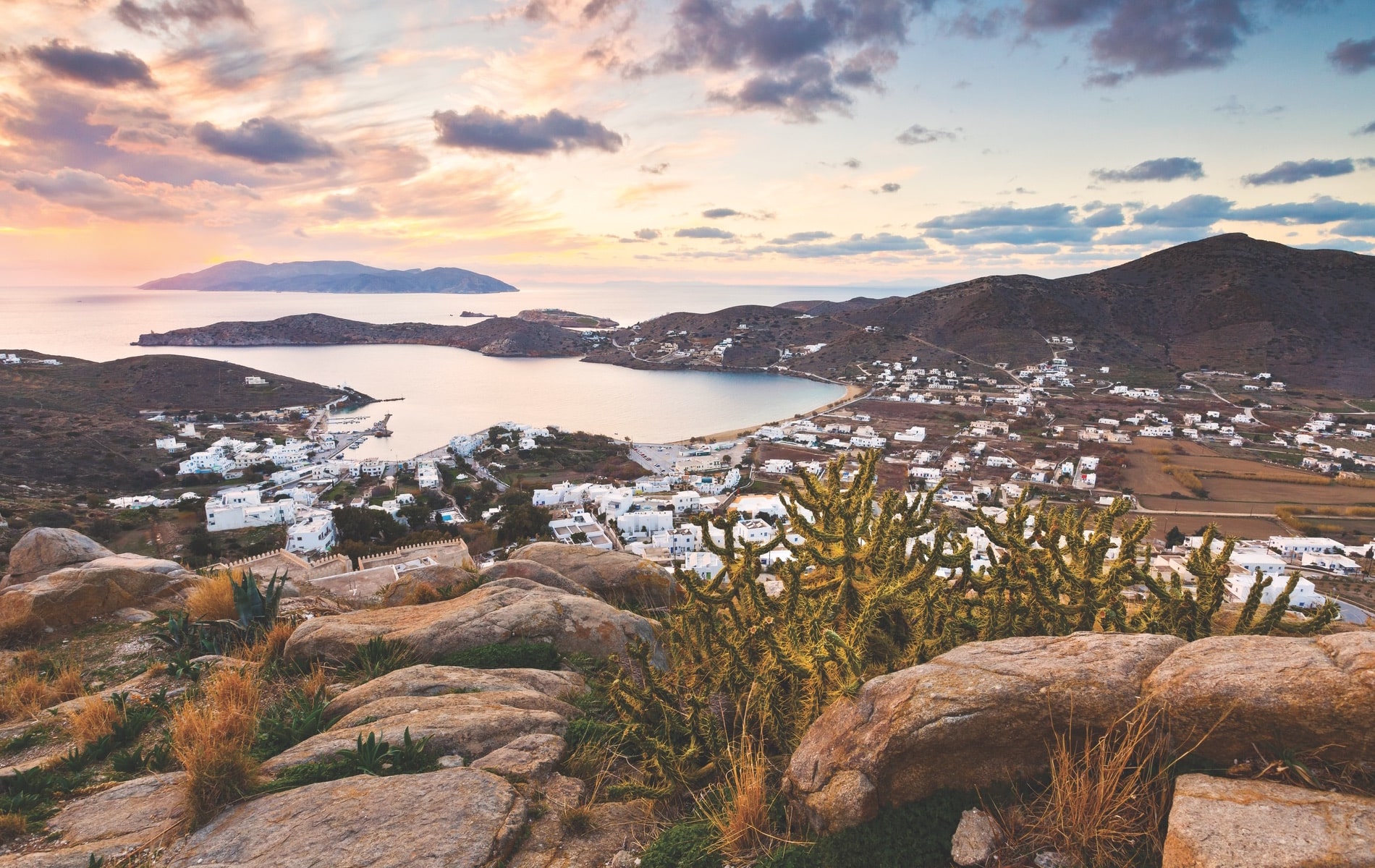
vie-magazine-ecotourism-in-ios-greece-hero-min
The small Greek island of Ios is home to not only scenic, off-the-beaten-track travel destinations but also a family’s effort to save the country’s ancient olive trees.
Saving the Olive Trees of Greece
By Rebecca Hall
Think of Greece and you’ll no doubt picture blue skies, islands, endless seas and horizons, eating fresh fish at a seaside taverna, and the staple of the land—olive trees.
These ancient trees—some of them hundreds, if not thousands, of years old—provide much to the earth: food, shelter to small animals, and water. They literally give back to the environment. Should we not respect these “wise old men of the land” and protect them wherever possible? Alas, man and technology can be nature’s enemy. Even in Greece—a country that tries to work in harmony with the nature that surrounds it—these beautiful trees are not immune to destruction. Railway line construction, for example, can mean the removal of hundreds of ancient olive trees to make way for new infrastructure, and they often end up in the homes of people to use as firewood.
Enter a Greek-American philanthropic family doing all it can to preserve this proud, ancient cultural symbol of Greece.
- Each olive tree relocated by the Elektra Olive Tree Project has a specific name and GPS coordinate.
- The charming port of Ios at the head of Ormos Harbor
- The town of Chora on Ios as seen from above | Photo by RAndrei / Shutterstock
The Island of Ios
Ios is a Greek island nestled between the famous tourist spots of Santorini and Mykonos. With no airport, it’s quieter than its neighbors yet no less beautiful. A hippie haven in the 1970s, Ios has since shaken the negative connotations that went with the peace and free love aspects, but it never lost its charm.
And yet, as with all gorgeous destinations, the fear of overdevelopment is always lurking in the wings. “We saw what happened to other Greek islands transformed by overdevelopment,” says Vassiliki Petridou, founder of LuxurIOS Island Experience, the local eco-resort company. “We’re determined to save Ios from that fate.” How is it possible to stop an island from becoming overly popular and imploding while also maintaining jobs and livelihoods for the locals?
The Petridou family has such respect for the earth and an affinity to the island that, after a lengthy bureaucratic process, they purchased a significant amount of land there to sustainably develop a small portion of it, leaving the rest to thrive and offer visitors a genuinely untouched Greek island experience. They wish to ensure that Greek island cultural heritage continues to thrive for future generations of locals and visitors alike.
From this desire, the LuxurIOS tourism project was born.
- A beautiful cathedral on Ios
LuxurIOS Island Experience
The “Luxur” in the LuxurIOS name is no coincidence. The concept is to provide luxury to all who visit the island from a unique, state-of-the-art tourism perspective. Petridou and her team maintain there are five elements to a successful vacation experience: luxury, privacy, culture, environment, and fun. This is reflected in the land they have so far developed on the island. There is a selection of beach bars, a sunset lounge experience, an environmentally friendly five-star, sixteen-suite boutique hotel, and, at the time of this writing, Calilo—derived from “Create a life you can fall in love with”—a thirty-suite five-star resort and spa being developed in the middle of a thousand-acre plot with six miles of coastline, guaranteeing nearly absolute privacy.
Don’t be fooled by the word “development.” As mentioned, the Petridous have a huge respect for the environment, and their projects have been constructed in a way that works in harmony with nature. All venues have underground water reservoirs to collect water during the rainy season to be utilized during the summer tourist season; all electricity and telephone lines and cables are underground, ensuring no visual pollution to the environment; and, wherever possible, they use local materials from the building sites in construction.
These efforts led nicely into the Elektra Olive Tree Project and the saving of more than 280 olive trees, each over three centuries old.
Elektra and the Olive Trees
Olive trees have a symbolic importance in the Mediterranean region, especially in Greece. Legend says Zeus arranged a contest between Athena and Poseidon for the possession of the city of Athens. As his gift to the people, Poseidon raised his trident, smashed it upon the rock of the Acropolis, and produced a salt spring. Athena, the goddess of wisdom, produced an olive tree with rich fruits dangling from the branches. This showdown between the two powerful gods is immortalized in stone on the western facade of the Parthenon.
The ancient Athenians chose Athena’s gift, and the olive tree has remained a central part of Greek life ever since. Its leaves have been used to crown the heads of victorious athletes, generals, and kings. Its wood is used to build houses and boats. Its oil fuels lamps, is rubbed into the toned bodies of athletes, and is added to all food dishes. Olives are a staple of the Mediterranean diet and a valuable export.
You can see the symbolism that the olive tree represents and its importance to Greek life. It should be held in high regard, so why should modern technology destroy it?
The Elektra Olive Tree Project works to combat this destruction. In 2013, over 180 olive trees in a small village in the southern Peloponnese faced elimination with the construction of a new stadium. Upon learning this, given their love of nature and ability to take action, the Petridou family set about finding ways to rescue the trees. This meant raising all the trees from the ground so as not to destroy the roots, transporting them over 320 miles by truck and ship, and replanting them on the island of Ios, specifically among the LuxurIOS enterprises such as Calilo. This came at considerable cost, but the family knew it was worth it to save these ancient symbols of Greece.
You can see the symbolism that the olive tree represents and its importance to Greek life.
The process involved removing all the branches from the trees, but the trunks and roots remained intact. Once replanted, the limbs regrew, one sprig at a time, and the trees now thrive in their new environment facing the Aegean Sea. Each tree has been given a name and a GPS coordinate.
To date, the Elektra Olive Tree Project has also replanted fifty-five thousand trees and bushes of various species and 283 olive trees that were due for destruction and destined for firewood. The plantings help to restore previously burned and deforested habitats on the island and decrease the carbon footprint of its inhabitants, assuring a greener future. The Elektra concept is so popular that any time olive trees are in danger, Petridou’s team will receive a call to see if they can be saved.
If a tree does happen to die during the process, it does not go to waste. The trunks are created into beautiful sculptures and furniture and showcased throughout the LuxurIOS enterprises, symbolizing Greece to its fullest.
— V —
Head online to VisitGreece.gr/en/greek_islands/ios to learn more about the island.
Rebecca Hall is an English language teacher turned travel writer and novelist living in Greece. She writes for various online publications and maintains her travel blog, Life Beyond Borders. Her debut novel, Girl Gone Greek, was released in 2015.
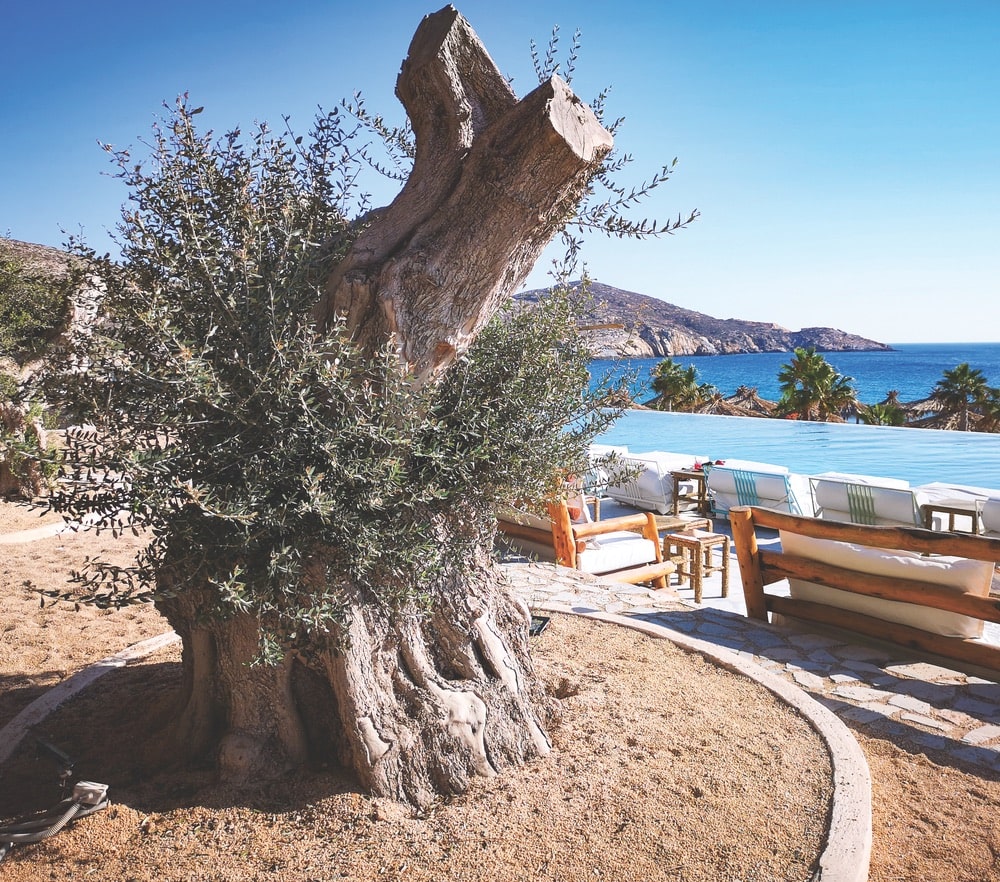
The Erego olive tree on Ios, one of thousands saved and relocated thanks to the Elektra Olive Tree Project | Photo courtesy of LuxurIOS
Traveling to Ios
Getting There
Fly to Athens and catch a ferry (approximately six hours) from Piraeus, or fly to Santorini, either via Athens or direct from some European destinations in the summer season, then ferry to Ios (approximately forty-five minutes to an hour).
Where to Stay
Agalia Luxury Suites – A member of Small Luxury Hotels of the World, this property overlooks the Aegean Sea and offers sixteen suites: three with private pools, three with private pools and hot tubs, and ten individual suites.
Calilo – Due to be completed in the summer of 2019, Calilo will offer five-star spa luxury on a thousand-acre plot of beachfront property along six miles of coastline. All thirty suites will have private pools, providing the ultimate in privacy.
Entertainment
Pathos Sunset Lounge Bar – For those who are looking for more of a party atmosphere, this is the place to be seen. This LuxurIOS Island Experience is set in Koumbara Beach overlooking the Aegean with a large infinity pool, five hot tubs, twenty-two entertainment areas (including five dugout hideaways), and a restaurant and bar.
Erego Beach Club and Restaurant – A smaller and quieter version of Pathos, minus the DJ. It, too, has a large infinity pool overlooking the Aegean and a selection of Greek dishes with a twist.
Steps Bar – Located in Chora, the only town on the island, Steps is laid out almost like an amphitheater, but with scatter cushions and handmade carpets for sitting, offering a quiet atmosphere to have a drink at the top of the island.
In all of these venues except the Steps Bar, it’s possible to see olive trees that have been planted and furniture and sculptures that have been created from tree trunks. Ios is not just another Greek island—it is an experience. Be sure to come and see for yourself!
Share This Story!
KEEP UP WITH THE LATEST STORIES FROM VIE



